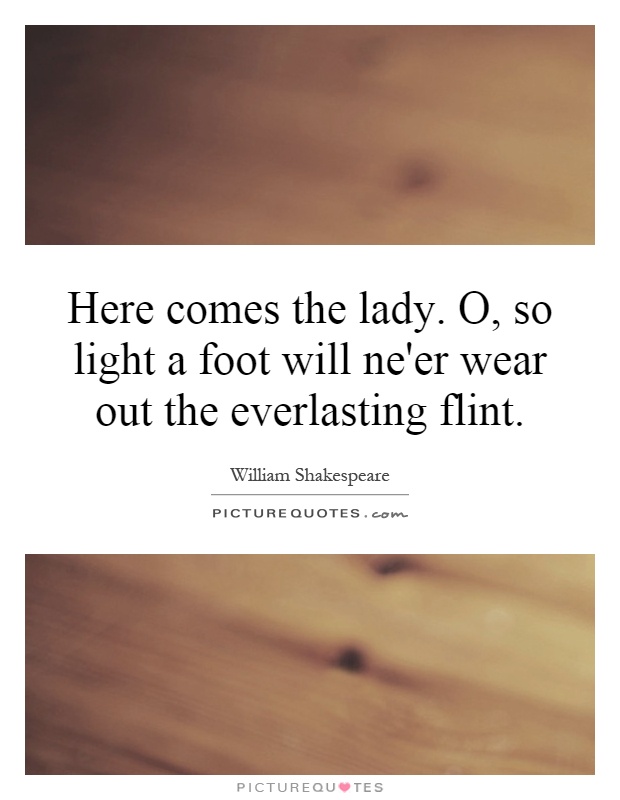Here comes the lady. O, so light a foot will ne'er wear out the everlasting flint

Here comes the lady. O, so light a foot will ne'er wear out the everlasting flint
In William Shakespeare's play, Romeo and Juliet, the line "Here comes the lady. O, so light a foot will ne'er wear out the everlasting flint" is spoken by Romeo as he sees Juliet approaching. This line is a beautiful example of Shakespeare's poetic language and his ability to capture the essence of a moment in just a few words.The image of Juliet's light foot never wearing out the everlasting flint is a metaphor for her grace and beauty. Flint is a hard, durable rock that is difficult to wear down, but Juliet's lightness and delicacy are so extraordinary that they seem to defy the laws of nature. This line conveys Romeo's awe and admiration for Juliet, as he is struck by her ethereal presence and the way she seems to float effortlessly towards him.
The use of the word "everlasting" in this line also adds a sense of timelessness to Juliet's beauty. It suggests that her grace and charm will never fade, that she will always be as radiant and enchanting as she is in that moment. This idea of eternal beauty is a recurring theme in Shakespeare's work, as he often explores the idea of love and beauty transcending time and mortality.
Furthermore, the juxtaposition of Juliet's lightness with the hardness of the flint creates a sense of contrast that highlights her uniqueness. She is like a delicate flower blooming in a harsh, unforgiving world, her beauty shining all the brighter for its contrast with the darkness around her.
Overall, this line is a testament to Shakespeare's skill as a poet and playwright. In just a few words, he captures the essence of Juliet's beauty and the impact she has on those around her. It is a reminder of the power of love and the enduring nature of beauty, themes that Shakespeare explores throughout his work.












 Friendship Quotes
Friendship Quotes Love Quotes
Love Quotes Life Quotes
Life Quotes Funny Quotes
Funny Quotes Motivational Quotes
Motivational Quotes Inspirational Quotes
Inspirational Quotes